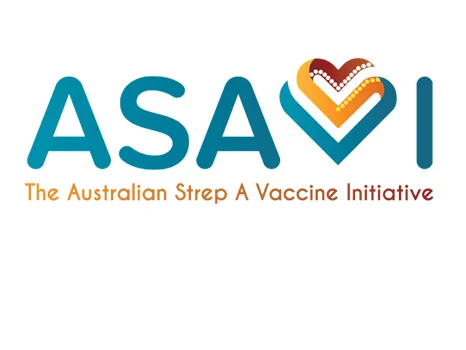Search
Research
The microbiology of impetigo in Indigenous children: associations between Streptococcus pyogenes, Staphylococcus aureus, scabies, and nasal carriagePrevalence and antimicrobial resistance of impetigo pathogens in a randomised, controlled trial of impetigo treatment conducted in remote Indigenous communities
Research
Acute rheumatic fever and rheumatic heart disease: Incidence and progression in the Northern Territory of Australia 1997 to 2010The reduction in ARF recurrence indicates that the RHD control program has improved secondary prophylaxis; a decline in RHD incidence is expected to follow.
Research
The Australian guideline for prevention, diagnosis and management of acute rheumatic fever and rheumatic heart disease (2nd edition)Acute rheumatic fever (ARF) and rheumatic heart disease (RHD) occur at very high rates among Aboriginal and Torres Strait Islander people.
Research
Is Streptococcus pyogenes resistant or susceptible to trimethoprim-sulfamethoxazole?Streptococcus pyogenes is commonly believed to be resistant to trimethoprim-sulfamethoxazole (SXT), resulting in reservations about using SXT for skin and...
Research
Clinical decision rules for diagnosis of Streptococcus pyogenes sore throat in Fiji: a prospective diagnostic accuracy studyAcute rheumatic fever is an immune-mediated condition triggered by Streptococcus pyogenes sore throat and possibly skin infection, with a substantial burden in resource-limited settings. Clinical decision rules (CDRs) are commonly used to guide antibiotic treatment of sore throat based on signs and symptoms, but their diagnostic accuracy varies by study and setting. This work aimed to assess the accuracy of multiple CDRs in Fiji to diagnose S. pyogenes sore throat.
Research
Koolungar (Children) Moorditj (Strong) Healthy Skin Project Part II: Skin Health in Urban-Living Australian Aboriginal ChildrenAlthough essential for overall health and wellbeing, little is known about skin health in urban-living Australian Aboriginal children. This co-designed, research-service project aimed to describe skin health and document skin disease frequency in urban-living Aboriginal children and young people in Western Australia and investigate housing associations for skin infections.
Research
It’s not just droplets: a systematic review and meta-analysis of the modes of transmission of Group A StreptococcusThe transmission of Group A Streptococcus (Strep A) through respiratory droplets has been considered the dominant mode of transmission to date; however, little is known about the relative contribution of other modes of transmission. This review systematically summarises the contemporary evidence regarding the transmission of Strep A.

Research
Australian Strep A Vaccine Initiative (ASAVI)The Australian Strep A Vaccine Initiative (ASAVI) is an Australian-led global initiative with the goal of reducing the disease burden caused by Group A Streptococcus (Strep A) infection through effective vaccination.
Research
BPG Formulation Preferences Study: Exploring patient, family and clinician reformulations preferences for BPGThe key objective of this study is to collect data about patient and clinician preferences about reformulations.
Research
Development of a longer acting formulation of Penicillin G for the treatment and prevention of acute rheumatic fever and rheumatic heart diseaseThis project aims to develop a longer acting formulation of penicillin, such that frequency of the injection can be increased up to 3-6 months.
